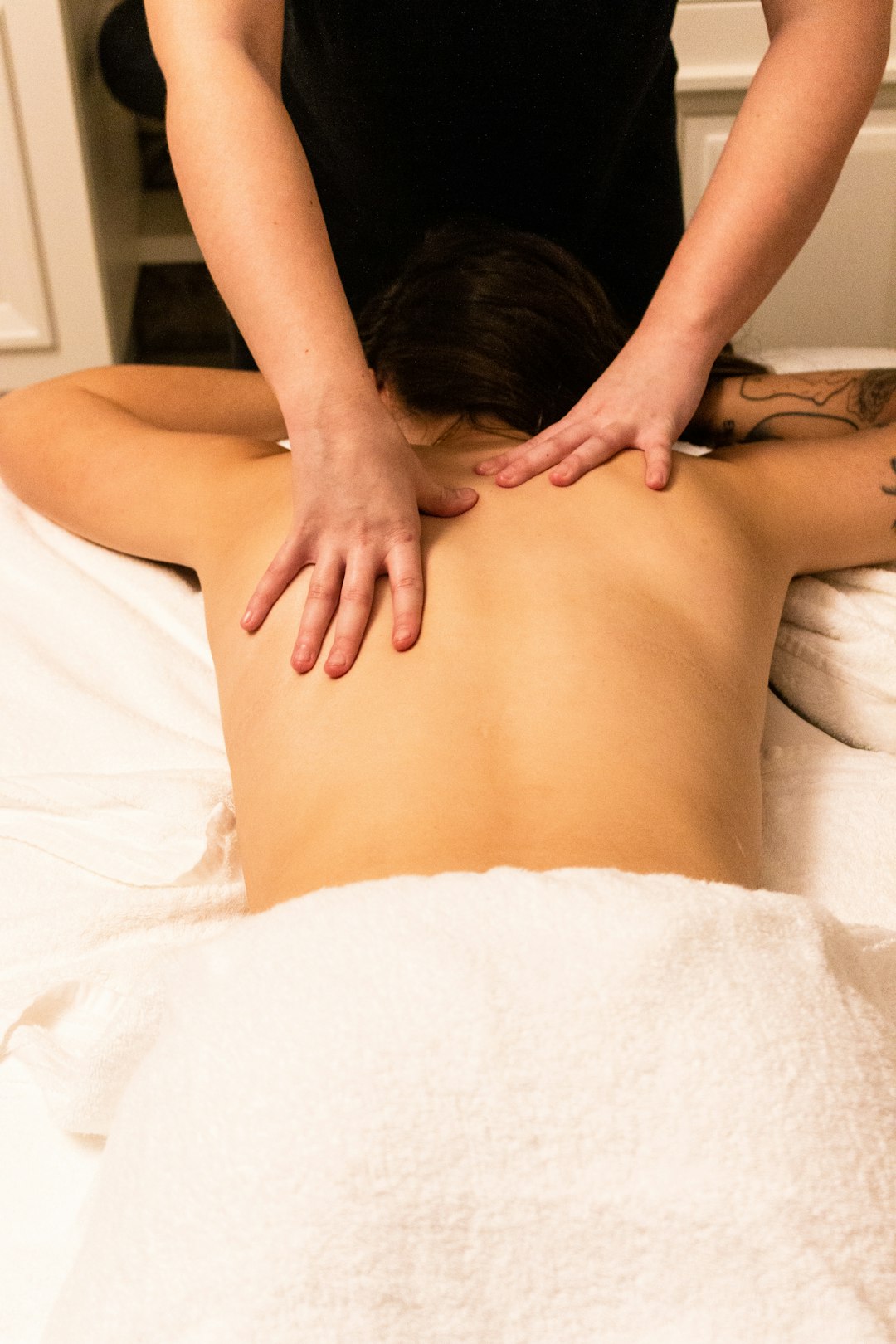In Columbus, Ohio, massage therapy regulation has evolved to address historical contexts and modern concerns, particularly sexual assault. The city now implements transparent, safety-focused measures like licensing, training, and inspections to protect clients and maintain industry integrity. Local governments prioritize public health and safety by overseeing licensing, training standards, business permits, and health inspections. Rigorous background checks, therapist training, and collaboration with massage therapy associations and advocacy groups help prevent sexual assault and support victims through partnerships with massage sexual assault lawyers Ohio.
In Columbus, Ohio, local governments play a pivotal role in regulating massage therapy practices, ensuring client safety, and fostering a professional environment. This comprehensive guide explores the historical evolution of massage therapy regulation in Columbus, delving into the legal framework that empowers local entities to issue licenses and permits. We examine their crucial functions in preventing and addressing sexual assaults, collaborating with advocacy groups, and working alongside massage therapy associations. Understanding these dynamics is essential for both practitioners and clients, especially considering the vital role of massage sexual assault lawyers in Ohio.
Historical Perspective: Massage Therapy Regulation in Columbus, Ohio

In Columbus, Ohio, the regulation of massage therapy practices has evolved over time, shaped by both historical contexts and modern concerns. Historically, massage therapy was often associated with holistic healing and wellness, with early forms of regulation focusing on ensuring quality care and hygiene standards. However, as societal awareness of sexual assault and misconduct increased, so did the need for stringent regulations to protect clients from potential abuse within the profession. This shift in perspective prompted Columbus’s local government to implement stricter guidelines, particularly in response to incidents involving massage sexual assault lawyers in Ohio.
The city’s regulatory framework now encompasses various measures to maintain transparency, client safety, and ethical conduct among massage therapists. Licensing requirements, ongoing training programs, and regular inspections aim to uphold professional standards while addressing past concerns related to massage therapy practices. Such proactive steps not only protect the well-being of Columbus residents but also contribute to the overall integrity of the massage therapy industry in Ohio.
Legal Framework: Understanding the Authority of Local Governments

Local governments in Ohio, including Columbus, play a pivotal role in regulating various professions, and massage therapy is no exception. The authority to govern such practices stems from the state’s enabling legislation, which empowers municipalities to create local codes and ordinances. These regulatory measures are designed to protect public health, safety, and welfare, ensuring that businesses operating within the city boundaries adhere to specific standards.
In Columbus, the legal framework for massage therapy regulation is administered by the Health Department, which sets guidelines for licensing, training, and practice standards. This includes provisions to prevent sexual assault and ensure informed consent, as well as rules governing the sanitation and safety of massage establishments. The city’s code addresses issues like business permits, health inspections, and consumer protection, all of which contribute to a safe and ethical environment for both practitioners and clients, especially in light of concerns raised by massage sexual assault lawyers Ohio.
Role of Local Government in Licensure and Permitting Processes

Local governments play a pivotal role in regulating massage therapy practices, particularly in ensuring consumer safety and preventing potential massage sexual assault. In Columbus, Ohio, municipalities like the City of Columbus Department of Public Health are tasked with issuing licenses and permits for massage establishments. This process involves rigorous standards to maintain quality and safety, including health inspections, employee training, and background checks.
The licensing and permitting procedures are designed to vet businesses and practitioners, removing unethical or unqualified individuals from practice. These measures help protect consumers from potential harm, ensuring only reputable and competent massage therapists operate within the city limits. Moreover, local governments often collaborate with law enforcement agencies to address complaints related to massage sexual assault, providing a comprehensive framework for accountability and safety in the industry.
Safeguarding Clients: Prevention and Response to Sexual Assaults

In regulating massage therapy practices, local governments in Columbus have a crucial role in safeguarding clients from potential sexual assaults. This involves stringent measures to prevent any form of misconduct within the industry. One effective strategy is establishing thorough background check processes for all massage therapists, employing robust verification systems, and regularly updating records to weed out individuals with a history of sexual offenses.
Moreover, local governments should ensure there are clear guidelines and protocols in place for responding to allegations of sexual assault promptly. This includes training massage therapy licensees on recognizing signs of exploitation or abuse and educating them about the legal protections available to victims. Collaboration with reputable massage sexual assault lawyers in Ohio can help establish robust legal frameworks that deter potential perpetrators and provide adequate support for affected individuals.
Collaboration with Massage Therapy Associations and Advocacy Groups

Local governments in Columbus play a vital role in collaborating with Massage Therapy Associations and Advocacy Groups to ensure ethical and safe practices within the industry. By fostering partnerships, they can gain insights into emerging trends, potential risks, and best practices. These collaborations are crucial for addressing issues like massage sexual assault, which has been a growing concern in Ohio. Working together, local authorities, associations, and advocacy groups can develop comprehensive regulations that protect clients while also supporting legitimate massage businesses.
Such partnerships enable the creation of educational initiatives, training programs, and code of conduct guidelines to uphold professional standards. This collaborative approach not only strengthens regulatory frameworks but also fosters public trust in the massage therapy industry. By engaging with key stakeholders, local governments can navigate complex issues effectively, ensuring a safe and therapeutic environment for all residents seeking massage services in Columbus.





